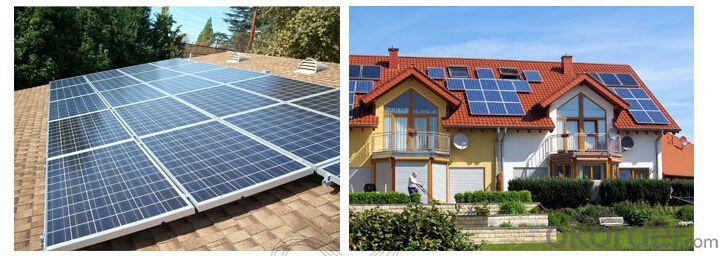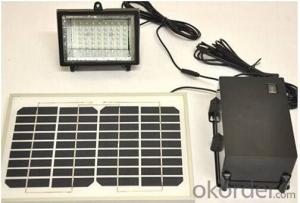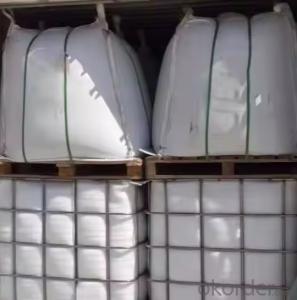CNBM Solar Home System Roof System Capacity-25W-3
- Loading Port:
- Shanghai
- Payment Terms:
- TT or LC
- Min Order Qty:
- 10 set
- Supply Capability:
- 30000 set/month
OKorder Service Pledge
OKorder Financial Service
You Might Also Like
Introduction of Solar Home System
Solar Home System is composed by Solar Panels, Inverters, Charger Controller, Battery, Cable, Mounting Bracket, which is applied to produce electricity for home use.
Solar Home System is quite suitable product in urban area and the place which is short of electricity. Our Small Solar Home System own great benifits compare with other kind electricity resources:
Electricity generating cost of Solar Home System is much cheaper than diesel engine. Beside low electricity making cost, solar system products also have the features of noiseless, clean energy, environmentally friendly and can access to many different electric appliance.
Working Principle of Solar Home System
The stand alone Solar Home System is an off-grid solar system which uses batteries to store the solar energy. Stand alone solar system solutions design for those who are not able or willing to connect to electricity grid.



Terms and Conditions
1. Trade terms: FOB Shanghai
2. Payment terms: 30% T/T, balanced before shipment/ LC at sight before shipment. Actual Terms can be negotiated for big order.
3. Package: Exported standard package suitable for tough handling and sea transport.
4. Delivery: Goods to be ready within 10~30 days depending on order quantity.
5. Warranty: 10 years for solar panel, 2 years for controller/inverter/battery.
FAQ
Q: Required mainly certificates (CE&IEC/TUV/RoHS)?
A: Our products are certificated by CE RoHS, IEC, ISO, TUV, UL etc.
- Q:How do solar energy systems contribute to reducing carbon emissions?
- Solar energy systems contribute to reducing carbon emissions by harnessing the power of the sun and converting it into electricity without producing any greenhouse gases. This clean and renewable source of energy replaces the need for fossil fuel-based power plants, which emit large amounts of carbon dioxide and other pollutants into the atmosphere. By adopting solar energy systems, we can significantly decrease our reliance on fossil fuels and mitigate the harmful effects of climate change.
- Q:Can solar energy systems be used for heating water in commercial buildings?
- Yes, solar energy systems can be used for heating water in commercial buildings. Solar water heating systems utilize the sun's energy to heat water, which can then be used for various purposes like showers, dishwashing, and laundry in commercial settings. These systems are cost-effective, environmentally friendly, and can significantly reduce energy consumption.
- Q:How does a solar thermal system convert sunlight into heat?
- A solar thermal system converts sunlight into heat through the use of solar collectors. These collectors, often made of glass, capture the sun's rays and transfer the energy to a heat transfer fluid or directly to water in the system. The fluid or water then carries the heat to a storage tank or heat exchanger, where it can be used for various purposes such as heating water, spaces, or even generating electricity.
- Q:Can solar energy systems be used in off-grid locations?
- Yes, solar energy systems can definitely be used in off-grid locations. In fact, off-grid locations are often ideal for utilizing solar energy systems as they provide a sustainable and reliable source of electricity without relying on traditional power grids. Solar panels can be installed in remote areas to generate electricity and can be combined with battery storage systems to store excess energy for use during nighttime or cloudy days. This allows off-grid locations to have access to clean and renewable energy, reducing their dependence on fossil fuels and minimizing their environmental impact.
- Q:Can solar energy systems be connected to the existing power grid?
- Solar energy systems can indeed be linked to the current power grid, known as grid-tied or grid-connected solar systems. In this configuration, solar panels harness sunlight to generate electricity, which is then converted by inverters into usable AC power. This AC power is then integrated into the existing power grid, effectively supplementing the utility company's electricity supply. Grid-tied solar systems provide multiple advantages. Primarily, they allow homeowners and businesses to decrease their dependence on fossil fuel-based electricity and reduce their carbon footprint. Moreover, any surplus electricity generated by the solar panels can be returned to the grid, resulting in net metering or feed-in tariffs. In this scenario, the excess power is credited to the system owner by the utility company, leading to substantial cost savings or even potential revenue generation. Furthermore, grid-tied systems ensure a reliable and consistent supply of electricity. During periods when the solar panels are unable to generate sufficient power, such as at night or during cloudy weather, electricity can be acquired from the grid. Conversely, when the panels produce more electricity than is being utilized, the surplus is sent back to the grid, guaranteeing an uninterrupted and continuous power supply. It is important to acknowledge that the installation and connection of grid-tied solar systems may necessitate the approval and coordination of the local utility company, as well as adherence to pertinent regulations and safety standards. Nevertheless, the capability to connect solar energy systems to the existing power grid renders them a versatile and advantageous renewable energy solution.
- Q:How does the efficiency of solar panels vary based on the cleanliness?
- The cleanliness of solar panels can impact their efficiency. When solar panels are free from dirt, dust, or debris, they are able to capture more sunlight and convert it into electricity more effectively. Clean solar panels are less likely to be obstructed by dust particles, which can limit their ability to absorb sunlight. Furthermore, a buildup of dirt or grime on the surface of solar panels can create a barrier that blocks sunlight from reaching the photovoltaic cells, thus reducing their efficiency. To ensure optimal performance, it is crucial to regularly clean and maintain solar panels. By keeping them clean, their efficiency can be maximized, resulting in improved electricity generation. It is advisable to periodically clean solar panels, especially in areas with high levels of dust or pollution, or during seasons when there is an increased presence of pollen or debris in the air. By doing so, the solar panels can continue to operate at their highest efficiency, leading to increased energy production and overall system performance.
- Q:How do solar energy systems impact the insurance coverage of a home?
- Solar energy systems can impact the insurance coverage of a home in a few ways. Firstly, the installation of solar panels may increase the overall value of the home, which may lead to higher insurance premiums. Additionally, the presence of solar panels on the roof can increase the risk of damage or theft, so homeowners may need to ensure they have adequate coverage for these potential risks. However, some insurance providers offer specific policies or endorsements to cover solar panels, which can help protect homeowners from any potential losses or damages associated with their solar energy system.
- Q:Are there any maintenance costs associated with solar energy systems?
- Yes, there are some maintenance costs associated with solar energy systems. Although solar panels generally require minimal maintenance, occasional cleaning and inspection may be necessary to ensure optimal performance. Additionally, there might be costs involved in replacing any worn-out components or repairing any damages. However, these maintenance costs are typically much lower compared to the savings obtained from using solar energy in the long run.
- Q:Can solar energy systems be used in areas with limited access to solar energy net metering programs?
- Yes, solar energy systems can still be used in areas with limited access to solar energy net metering programs. While net metering programs can provide financial benefits by allowing excess solar energy to be sold back to the grid, solar energy systems can still generate electricity for on-site consumption even without a net metering program. This can help reduce reliance on traditional grid power and provide a more sustainable and cost-effective energy solution in areas with limited access to net metering programs.
- Q:Can solar energy systems be used for powering electric vehicle recycling facilities?
- Yes, solar energy systems can definitely be used for powering electric vehicle recycling facilities. Solar power is a renewable and clean energy source that can be harnessed by installing solar panels on the facility's roof or in nearby open spaces. These panels can generate electricity by converting sunlight into usable energy. By utilizing solar energy, electric vehicle recycling facilities can significantly reduce their reliance on traditional grid electricity, which is often generated from fossil fuels. This transition to solar power not only helps in reducing greenhouse gas emissions but also decreases the facility's carbon footprint. Moreover, electric vehicle recycling facilities typically require a substantial amount of energy to power heavy machinery and equipment used in the recycling process. Solar energy systems can provide a reliable and constant source of electricity to meet these energy demands. Additionally, incorporating energy storage solutions, such as batteries, can ensure uninterrupted power supply even during periods of low sunlight or at night. Implementing solar energy systems in electric vehicle recycling facilities also aligns with the overall mission of promoting sustainability and environmental responsibility in the electric vehicle industry. It showcases a commitment to clean energy practices throughout the entire lifecycle of electric vehicles, from production to recycling. In conclusion, solar energy systems are a viable and environmentally-friendly option for powering electric vehicle recycling facilities. They offer a sustainable and reliable source of electricity, reduce reliance on fossil fuels, and contribute to a greener and cleaner future.
1. Manufacturer Overview |
|
|---|---|
| Location | |
| Year Established | |
| Annual Output Value | |
| Main Markets | |
| Company Certifications | |
2. Manufacturer Certificates |
|
|---|---|
| a) Certification Name | |
| Range | |
| Reference | |
| Validity Period | |
3. Manufacturer Capability |
|
|---|---|
| a)Trade Capacity | |
| Nearest Port | |
| Export Percentage | |
| No.of Employees in Trade Department | |
| Language Spoken: | |
| b)Factory Information | |
| Factory Size: | |
| No. of Production Lines | |
| Contract Manufacturing | |
| Product Price Range | |
Send your message to us
CNBM Solar Home System Roof System Capacity-25W-3
- Loading Port:
- Shanghai
- Payment Terms:
- TT or LC
- Min Order Qty:
- 10 set
- Supply Capability:
- 30000 set/month
OKorder Service Pledge
OKorder Financial Service
Similar products
New products
Hot products
Related keywords






























